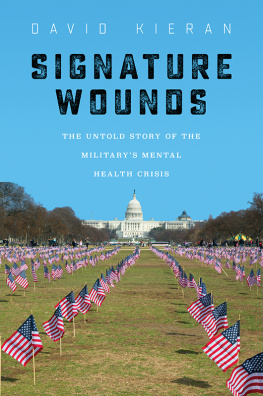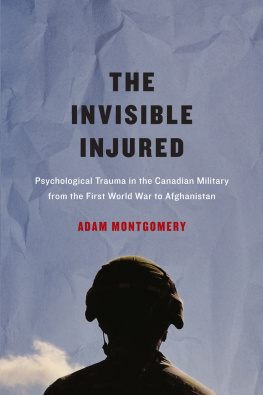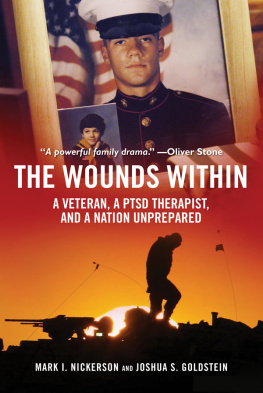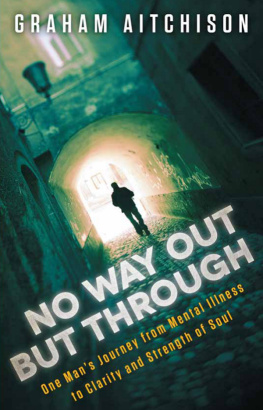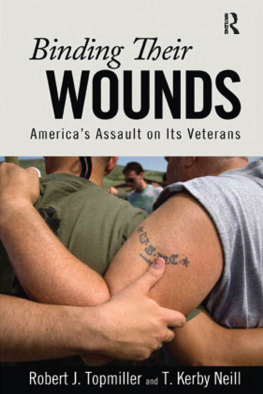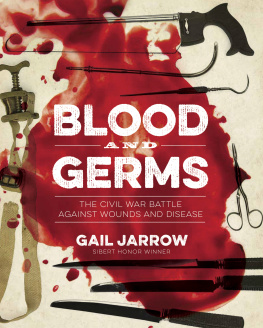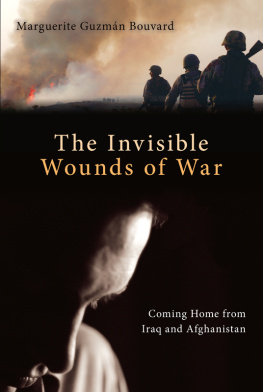Published by Louisiana State University Press
lsupress.org
Copyright 2021 by Louisiana State University Press
All rights reserved. Except in the case of brief quotations used in articles or reviews, no part of this publication may be reproduced or transmitted in any format or by any means without written permission of Louisiana State University Press.
Designer: Michelle A. Neustrom
Typeface: Sina Nova
Cover illustration: Three figure studies of soldiers, by Alfred Waud. Library of Congress. Watercolor illustration by Olga Thelavart on Unsplash.
Portions of Chapter 4 first appeared in The God Who Shielded Me Before Yet Watches Over Us All: Confederate Soldiers, Mental Illness, and Religion, Civil War History, 61.3 (September 2015), 25280. Portions of Chapter 5 first appeared in Civil War Soldiers and Dreams of War, Civil War History 66.2 (June 2020), 10324.
Library of Congress Cataloging-in-Publication Data
Names: Carroll, Dillon J., author.
Title: Invisible wounds : mental illness and Civil War soldiers / Dillon J. Carroll.
Other titles: Mental illness and Civil War soldiers
Description: Baton Rouge : Louisiana State University Press, [2021] | Series: Conflicting worlds: new dimensions of the American Civil War | Includes bibliographical references and index.
Identifiers: LCCN 2021020608 (print) | LCCN 2021020609 (ebook) | ISBN 978-0-8071-6966-7 (cloth) | ISBN 978-0-8071-7683-2 (pdf) | ISBN 978-0-8071-7684-9 (epub)
Subjects: LCSH: United StatesHistoryCivil War, 18611865Psychological aspects. | United StatesHistoryCivil War, 18611865VeteransMental health. | United StatesHistoryCivil War, 18611865Social aspects. | United StatesHistoryCivil War, 18611865Influence. | United States. ArmyMilitary lifeHistory19th century. | SoldiersUnited StatesSocial conditions19th century. | VeteransUnited StatesSocial conditions19th century. | War neurosesUnited StatesHistory19th century. | Psychic traumaUnited StatesHistory19th century.
Classification: LCC E468.9 .C37 2021 (print) | LCC E468.9 (ebook) | DDC 362.2086/970973dc23
LC record available at https://lccn.loc.gov/2021020608
LC ebook record available at https://lccn.loc.gov/2021020609
Acknowledgments
READERS WHO CANNOT STOMACH effusive statements of thanks ought to skip ahead, for I plan to thank everyone who played a part in the creation of this book. I owe a special thanks to Jean Irving, who helped get me admitted to Chico State as a young undergraduate who really did not belong; I have never forgotten her kindness. This book would not exist without Dr. Robert Tinkler, whose Civil War and Reconstruction course, which I took in 2007, literally changed my life. We are now colleagues of sorts, teaching history at colleges in the same city. I am continually impressed with his insight, his kindness, his patience, and his love for teaching. He also introduced me to Dr. Stephen Berry, who became my doctoral advisor. I had feverishly read Steves magisterial book All That Makes a Man, and when he visited Chico, Robert arranged a lunch meeting; the rest is history. I am incredibly lucky to have worked with Steve, who is an inspiring historian with a monumental intellect and a wizard with the pen. I consider him a mentor and a friend.
In a decade of studying and working in higher education, a large coterie of historians, editors, colleagues, and friends have been extraordinarily generous with their time and their advice, for all of which I am very grateful. Thanks to John Inscoe, Stephen Mihm, and Peter Carmichael, whose insightful suggestions and masterful edits helped shape this project. Series editor T. Michael Parrish and Rand Dotson at LSU Press have been fabulous; their patience as I missed deadline after deadline did not go unappreciated. I am grateful also for the many historians who read, commented, or edited my work in class, in conferences, or in print. I could not possibly name them all (and fear leaving out a name if I tried), but you know who you are. Over the years at academic conferences, I met a group of graduate studentsnow working historianswho have provided much needed friendship, cheer, and insightful criticism, among them Sarah Handley-Cousins, Angela Riotto, Darin Tuck, Jonathan Lande, Katie Thompson, and Ashley Bowen. In addition, an excellent cohort of fellow graduate students at the University of Georgia have all been intermittent objects of envy and sources of pride. Finally, I am thankful for my colleagues at Butte CollegeChristie Trolinger, Charles Turner, Cynthia Bynoe, and Randy Cousineauwho have been extraordinarily welcoming.
Helping me with this project was a veritable company of archivists around the country. I am particularly indebted to archivists at the National Archives, New-York Historical Society, Georgia State Archives, South Carolina State Archives, and the Library of Virginia. I have also been blessed by financial support from numerous institutions and individuals. At the University of Georgia, grants from the Willson Center for the Humanities and Arts, the History Department, and the Graduate School supported this project. Greg and Amanda Gregory have been extraordinarily generous. Words cannot express my thanks to them; their donations supported research trips and conference presentations for several years of my graduate career. A special thanks goes to Flo, a librarian at Chico State, who helped track down books so I could continue to work while visiting my family during the holidays.
Numerous friends in the several cities I have called home over the past decade have unburdened me of my cares and made life a little better. The value of friends was put into stark relief during the Covid-19 pandemic, during which this book was finished. In Chico, I am very grateful for many longtime friends, especially a dear group we affectionately call the McManus Mafia. In Athens, Jacob Martin, James Wall, and Kurt Windisch consistently offered stimulating conversation, steady laughs, and understanding commiseration over the pitfalls of graduate school. In New York City, Alice Bonner, Tariq Hamami, and Cara Dal Nogare were always ready for libations at Harlem Public or games of Trivial Pursuit. In Sacramento, where I now live, Colin Steiner and Holly and Dave Leshikar have provided good company and great conversation. Moreover, many friends have graciously opened their homes to me for extended stays during my numerous research trips, among them Holly and Zac Smith, McNeill and Pat Kelly, and Adam and Addy Parker.
I am very thankful for the North family, especially my in-laws, Yasue and Ray Eastman and the late Jim North. They have provided my welcoming home away from home. While on long visits with the Norths, I continued the research and writing of this book; Yasue was always astonished at the pile of books accompanying me on vacation. My brother-in law Owen North, and sister-in law Sadasa North, are as close to siblings as in-laws can be; Im very grateful for them both. Jim was a man of incorrigible curiosity, a dark sense of humor, and a deep commitment to his family. We miss him, and I wish he had been able to see this book published.
Words cannot express my gratitude for my family. My parents, Mike and Janet Carroll, created a home that was filled with love, patience, and laughter. For as long as I can remember, they have modeled the importance of work ethic, compassion, humor, and a lifelong love of learning. They always encouraged my exploration of history, even when it took me across the country, and encouraged me to remain at UGA and stick it out despite my homesickness; I am glad they did. My siblings, Cassie and Conor, have been my cheerleadersand occasional tormentorsfor as long as I can remember. Im grateful for them both.


